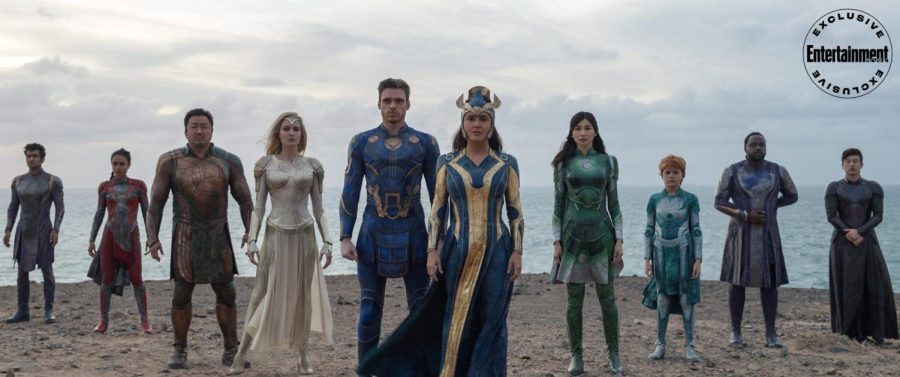Edward Snowden, the man responsible for leaking classified information regarding the NSA to the public, is currently living in Moscow after being banned from entering the United States. He’s a rather polarizing figure: Some people say he’s a hero for his actions, while others call him a traitor. With source material ripe for a cinematic retelling, there have been a number of documentaries on this subject, most notably the remarkably brilliant 2014 film “Citizenfour.” Now, Oliver Stone delivers his take on the events that took place in his new film, “Snowden.”
Despite the intriguing subject matter, many filmmakers would shy away from centering a film around the character of Snowden, in fear of having to objectively cast a controversial opinion in a mainstream film. Not Oliver Stone. Being one of the more controversial directors of modern day cinema, Stone has never backed away from political situations and conspiracies, having directed such films as “Platoon,” “JFK” and “Natural Born Killers.” In his first film since 2012’s mediocre outing “Savages,” “Snowden” is his return to the director’s chair in a film that is clearly hoping for some Oscar attention.
Depicting real life events taking place between 2002 and 2013, “Snowden” stars Joseph Gordon-Levitt as Edward Snowden. After being medically discharged from the army, Snowden, still full of passion to serve his country, lands a job as a computer analyst in the CIA. Once there, Snowden quickly learns of their massive and abrasive technological imprint, which gives them the ability to track anybody in the known world at any given time. Risking his life to defend the privacy of unknowing Americans, Snowden hacks into the government system in an effort to expose their misdoings.
“Snowden” also boasts an impressive supporting cast including Shailene Woodley, Tom Wilkinson, Zachary Quinto, Melissa Leo, Rhys Ifans and Nicholas Cage.
While Stone has made many iconic films over the past few decades, he has also made his fair share of misfires. Unfortunately, “Snowden” falls into the latter category, as the disappointing film surely won’t be receiving an Oscar anytime soon. While Joseph Gordon-Levitt’s portrayal of Snowden is brilliant, the film puts his talents to waste in a story that is as unfocused as it is poorly paced. Spending far too much time in unimportant backstories and an unnecessary romantic sub-plot, the film then glosses over any attempt in allowing the audience to truly grasp the moral complexity at play.
The real Edward Snowden may certainly be a divisive figure, but the film in no way capitalizes on this and instead paints the issue in black and white. Snowden is portrayed as a saint, instantaneously and nobly deciding to turn on the government without a shred of doubt. The character’s morality is never questioned or explored, as the film never gives the audience the chance to develop their own view on Snowden. Instead, it shoves the filmmakers’ views down their throats.
The many actors in the film are all talented and deliver well-acted performances. However, most of their characters are often underused or overlooked. Much of the film’s two hours and fourteen minute runtime, one that is far too long, is spent on the relationship between Levitt and Woodley, which despite having good chemistry, takes away from other characters and the overall story. Most notably, the sub-plot involving a group of reporters played by Tom Wilkinson, Zachary Quinto and Melissa Leo is left completely underutilized.
There are moments in “Snowden” that point to a better film, the one audiences were hoping would capture the complexity of the character and the decisions he had to make. However, most of those moments are few and far between, drowned out by a messy script that focuses its attention in all the wrong places. At the very least, “Snowden” may make people aware of the events that took place and inspire them to do their own research. But as far as filmmaking goes, it’s a dull ride that is another misstep for Oliver Stone.








